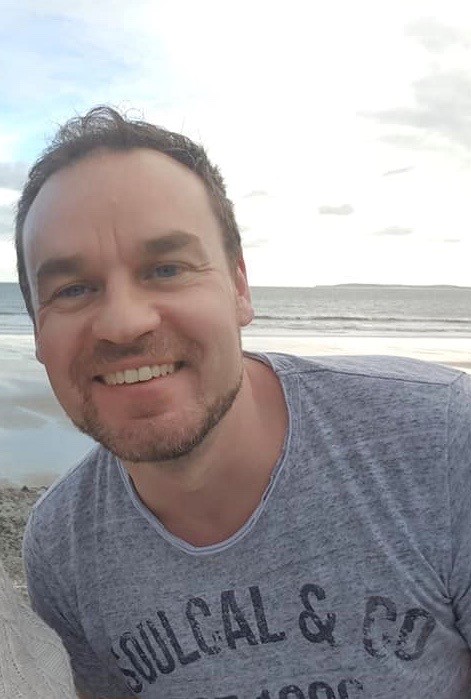One of the biggest challenges you may encounter as a foster parent is if a child’s time with your family ends unexpectedly. We sat down with one of our Fostering Advisors, former foster parent Wayne, to learn just what support is available to foster parents who have experienced an unplanned ending.
What is a foster care disruption, and why do some foster placements end unexpectedly?
Disruption in foster care means that a placement has ended unexpectedly; for example, if a child were in a long-term foster care arrangement, this would mean them leaving the care of their foster parent before they turned 18. You may hear disruptions referred to by other terms, such as a foster care breakdown or an unplanned ending.
A placement may be disrupted for several reasons, such as:
- If a foster parent requests that a placement ends early, as the child’s needs are greater than what they can currently provide for, or they are no longer able to keep the child safe
- If a child requests to be removed from their current foster home
- If a foster parent becomes ill, or cannot continue the placement for any other reason
There are many reasons why things might not work as expected during a foster care placement. Disruptions in foster care can be very emotionally challenging for children and their foster families, and everyone involved will need support throughout the process of ending a foster care placement and beyond.
Wayne’s story of navigating a foster care breakdown
We sat down with Wayne, one of our wonderful Fostering Advisors who knows first-hand what families go through during a fostering placement disruption. Wayne has himself experienced an unplanned ending in foster care during his time as a single foster parent.
Let’s hear from Wayne as he reflects on his experiences and learn how he’s helping other families to navigate foster care placement breakdowns.
Life as a single foster parent
“I came into fostering because I was feeling unfulfilled in my previous job,” Wayne said, having previously worked as an operations manager in the travel industry. “I wanted to find a way to give back and help others, so I began fostering with an Independent Fostering Agency. I welcomed home a young lad, and it was a big adjustment for us both at first, but over time we built a really steady, healthy relationship. We spent three years together, and I got to learn just how amazing a kid he was.”
“As he got a bit older and moved through his secondary school years, he started to struggle a little more. After a particularly challenging incident at school which caused some friction between us, I received a call from his teachers to say that he’d decided that he didn’t want to live with me anymore. I tried to convince him to change his mind, but he’d made his decision, which I respected. The Social Workers made arrangements for him to go into emergency respite care that evening.”

Dealing with a disruption in foster care
Emotions were high for Wayne after receiving the news that his foster child wouldn’t be coming back home. It took some time for everything to sink in, and for Wayne to come to terms with the end of their close relationship. He said:
“It was very unexpected. I was devastated, to be honest. Those initial first few days were really hard, because I’d really grown to love and care for him. It broke my heart to tell the neighbours that he wouldn’t be living with me anymore. I kept looking at his belongings all still in my house, knowing that he needed his things. It almost felt like a loss, like grieving, because the person you care for is suddenly not there, yet their belongings remain.”
“Emotionally it was an incredibly difficult time. I felt like a bit of a tortoise going into my shell, hiding away from the world. I felt like a failure, to think things had gotten to the point where he didn’t want to come home. I decided to take three months away from fostering to reflect on our journey together. You invest your heart and soul into the child you’re caring for, and I wasn’t sure at the time if I could face the possibility of things not working out again.”
During his chat with us, Wayne highlighted the importance of mental health considerations and self-care for foster parents. He said:
“During those three months, I spent a lot of time thinking about what I could have done better. I think part of the issues we faced was that I was neglecting my own self-care needs. Especially when you’re a single foster parent, it’s essential that you get some downtime. The truth is, I was exhausted. I was tired. I felt guilty for even considering respite, as though I’d have been letting my foster child down. The truth is, foster parents need to make the most of all the support which is offered to them. You need a supportive team around you. I think that if I’d been with a really supportive agency like ISP back then, maybe things would have been different for us.”
Looking for extra support for your family? Learn what it’s like to transfer to ISP.
Returning to fostering
Wayne returned to fostering when the time felt right, welcoming two brothers into his home. Even as Wayne continued his fostering journey, he always kept his previous foster child close in his thoughts. He said:
“I’d always message him to wish him well on special occasions, even though I heard nothing back. I just wanted him to know that I still thought about him and cared for him. Then one day, out of the blue, I got a text from him. Since then, we’ve discussed our challenges, and I held my hands up to where I could have done better. I think that’s been a powerful lesson for him, to see an adult stand up and accept their mistakes, making an effort to reflect on them and move things forward. The bond we built will always be important to me. He knows that my door’s always open if he needs me.”
Finding the right support for foster parents
Wayne is now married and is working at ISP as one of our Fostering Advisors, alongside studying at university to become a Social Worker. Wayne’s empathy and rich experience make him the ideal person to help other foster parents to navigate the ups and downs of fostering. He said:
“Taking on this role at ISP just felt like the right thing to do. I knew that I had the knowledge to support others, and families see me differently once they know that I’ve been in their shoes and really understand what they’re going through. I’ve even started up a single foster parent support group where we meet once a month to catch up and help each other through the challenges which come along with fostering as a single person.”
“I’ve been on an amazing journey over the years through fostering, and I want to continue helping other families and encouraging them to seek support. I think we foster parents can sometimes adopt an attitude of, ‘oh, I’m a foster parent, throw anything at me and I can deal with it!’, when that’s not the reality. We all have our strengths and weaknesses, and no one can foster without support.”
We asked Wayne what his final piece of advice would be to any foster parent who has experienced the hardships of an unplanned ending in foster care. He said:
“I want to let every foster parent out there know that there’s no shame related to a placement breaking down, and there is no shame in reaching out when you need extra help. With all the will in the world, sometimes a placement comes to an end. What’s important is that you don’t underestimate how much you may have helped a child during the time you spent together, however long that time was. My former foster child and I had some amazing times, and I will always treasure them. I think we both learned so much from our time together.”
How ISP supports foster families
Experiencing an unplanned ending while in foster care can knock your confidence as a foster parent. Like Wayne, you may be confronted with feelings of having failed in your role or may even consider quitting fostering altogether. Here at ISP we aim to support you and prevent unplanned endings in a range of ways, including:
- Expert training. It’s important that foster parents have realistic expectations of their foster children, understanding the impact that trauma may have had on their young lives. All of our foster parents receive our bespoke therapeutic foster care training to help them navigate this. Therapeutic foster care was developed by our team in 1987 and is now a widely recognised approach, taught via a three-step training programme. As the UK’s first ever Independent Fostering Agency, you can trust that you are in safe hands with ISP.
- Careful matching. ISP’s careful matching process between children and families helps to build lasting bonds, as we seek to match children and families based on considerations including personality, culture and personal preferences. As a foster parent you’ll never be pressured to say yes to a match which you feel is outside of your skillset, and you’ll always have opportunities to grow and develop via our training so that you are able to welcome children with more complex needs than you’ve currently experienced caring for.
- Ongoing support. It takes a village to raise a child, and here at ISP you’ll never be alone. If you are experiencing hardships during a placement and feel you need extra support or intervention, we’ll be on hand to provide you with everything you need, including respite care, therapeutic support and a generous fostering allowance.
Remember, you’re never alone while fostering
If you have experienced a placement breakdown in foster care or worry that your current placement may be at risk of breaking down, please don’t hesitate to reach out to our team of Fostering Advisors and your Supervising Social Worker for support. No one can foster and thrive without a caring network of support, and we’re here to help you, no matter your concern.
Check out our knowledge hub for more advice for foster parents, including our article on how to deal with feelings of compassion fatigue.






